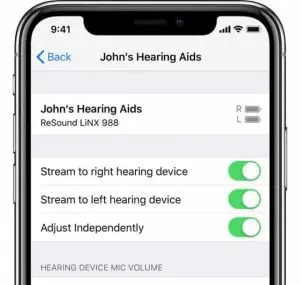“Cosco” Hearing Aids?! The Phonetic Quirk Behind “Cosco” Instead of “Costco”: Unveiling the Spelling Mystery
Have you ever noticed that some people often spell “Costco” as “Cosco”? It originates from phonetics and the way our brains process sounds, constituting a linguistic phenomenon. This seemingly innocent misspelling sheds light on the fascinating interplay between language, phonetics, and human cognition.
Phonetics and the Brain’s Role
At the heart of the “Cosco” versus “Costco” spelling conundrum lies a phonemic phenomenon. Phonetics deals with the sounds of spoken language, and our brains have a natural tendency to interpret sounds based on how we hear them. When we say “Costco,” the /t/ sound is followed by the /s/ sound, which can sometimes blur together in speech. Our brains might perceive it as a single /ts/ sound, leading to the phonetic approximation of “Cosco.”
The way words are pronounced often gives rise to phonemic misspellings in English, rather than their standard written form causing them. For instance, “alot” is a common misspelling, reflecting the phonetic pronunciation of “a lot.” Similarly, “could of” is a phonetic mistake for the contraction “could’ve,” which stands for “could have.” Informal writing often employs “wanna” as a phonetic representation of “want to,” and “gonna” for “going to.”
Other examples include “should of” instead of “should’ve” (short for “should have”), “finnaly” in place of “finally,” “cuz” for “because,” and “their” instead of “their.” The confusion between “your” and “you’re” results from their similar pronunciation. People often use “Definately” phonetically, intending to write “definitely.”
In some dialects, “aks” is used as a phonetic variant of “ask,” while “prolly” stands for “probably.” The phonetic error “nucular” occurs for the word “nuclear,” and “shoulda” is an informal contraction for “should have.”
These instances underscore how language dynamically evolves, as spoken patterns influence written language, leading to phonemic misspellings in everyday writing.
Search Engines and Phonetic Queries
Now, let’s delve into the fascinating world of online searches. When people are looking for information on Costco’s hearing aids, they often type in what they think they heard: “Cosco Hearing Aids.” This produces a classic example of a phonetic query, where the pronunciation of words influences the spelling.The finely attuned Google search algorithm recognizes this pattern of user behavior and accommodates it by providing search results for both “Cosco” and “Costco.”
Grammar and Language Evolution
In the broader context of language, the “Cosco” phenomenon underscores the dynamic nature of grammar and spelling. Languages undergo constant evolution, and over time, spellings can change to mirror the common pronunciation of words. While “Costco” is the correct spelling, the prevalence of “Cosco” in searches reflects the fluid nature of language and how it adapts to our linguistic idiosyncrasies.
Implications and Takeaways: “Cosco” Hearing Aids?!
The “Cosco” versus “Costco” spelling mishap is a reminder of the intricacies of human communication. It highlights the complex interplay between spoken language, written language, and the cognitive processes that bridge the gap between the two. As language enthusiasts, we’re witnesses to the ever-evolving tapestry of communication, where even a simple trip to the store can offer insights into the fascinating world of phonetics and language evolution.
Well, there you have it, fellow language enthusiasts! In our valiant quest for grammatical perfection, fear not the whims of spelling, for the benevolent overlords at Google shall swoop in to save the day. Who needs spelling lessons when our trusty search engine can decipher “cosco” from “Costco” with the grace of a linguistic acrobat? So, let’s raise our proverbial glasses to the almighty Google, our steadfast companion in the adventure of phonemic misspelling. hearrings! Or is it “earrings”? Let Google decide, for it has surely earned its wings in the Spelling Hall of Fame.





